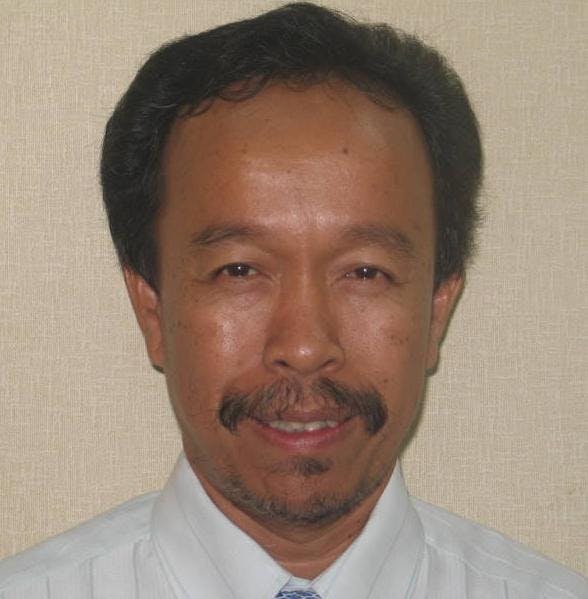As Asia continues to rapidly urbanise, smart buildings have become a key priority for governments and companies looking to minimise energy costs while at the same time providing a high level of comfort and security for their users.
Today, buildings account for a third of energy use in most countries and therefore hold the greatest potential for energy savings in an increasingly resource-strained environment. Building owners also face the challenge of improving the financial performance of their facilities while ensuring they meet ever-increasing sustainability standards.
This week, SMART Facilities Management Solutions Expo 2016 returns for the third year to showcase an integrated platform for industry professionals in the facilities management (FM) sector, discuss these issues and learn about the latest smart solutions in the industry.
Organised by Sphere Exhibits, the trade show seeks to help the industry integrate smart solutions into the existing facilities management ecosystem.
To enable this, the event will feature the latest technologies and solutions in energy management, security, environmental management, air conditioning and mechanical ventilation from over 50 exhibiting companies from across the world.
Alongside the Expo, Sphere Exhibits is also hosting the second Facilities Management Conference themed “Challenges and future of SMART Facilities Management”. The two-day event aims to address the challenges and opportunities for smart facilities management through the effective use of resources and smart innovation.
Alongside the conference and trade show will be a regional focus group session on challenges and opportunities for facilities management in the Asean Economic Community. Member countries of the Association of Southeast Asian Nations - known as Asean - are Brunei, Cambodia, Indonesia, Laos, Malaysia, Myanmar, the Philippines, Singapore, Thailand and Vietnam.
Last November, Asean countries established a formal community – the Asean Economic Community – which will create freer movement of trade and capital in an area of 625 million people with a combined economic output of US$2.6 trillion.
Chua Wee Phong, chairman of Sphere Exhibits, a subsidiary of media giant Singapore Press Holdings, says the event is a key milesetone in “fostering integrated knowledge-based sharing in Asean”, as key facilities management-related academic representatives from Bangkok’s Chulalongkorn University, the National University of Singapore, and Universiti of Teknologi Malaysia will meet at the event.
Ahead of the event which opens on Tuesday, Eco-Business speaks to Professor Miswan Abdul Hakim Mohammed of Facility Management, Faculty of Geoinformation and Real Estate at Universiti Teknologi Malaysia (UTM) in Johor Bahru, who shared his insights on the latest industry trends and challenges.
How will the Focus Group discussion, aimed as a knowledge-based sharing for Asean, help the FM industry?

Professor Miswan Abdul Hakim Mohammed. Image: Universiti Teknologi Malaysia
The focus group discussion is a knowledge-based sharing by our post-graduate students who are doing research in the field of facilities management. At the post-graduate level, a study begins by identifying a specific problem and then formulating solutions based on theories and practices.
As such, the focus group discussion will help the FM industry by offering and recommending knowledge-based solutions that would relate either to their FM processes or performance.
What are some of the biggest trends in FM that will be discussed during the focus group? Are there some examples you can share?
Some of the biggest trends in FM are ensuring green building performance and energy management effectiveness.
There are many factors that contribute to the green building performance as listed in various green building index measurements. Currently, a study is being carried out to identify relationships between green building key management practices and green building performance.
Effective energy management is essential to achieve cost reduction in the building operations, and this requires both structural and non-structural approaches. Many initiatives relating to the former involve the retrofitting and usage of technologies. However, non-structural strategies and practices are neglected and require more attention to ensure its effectiveness.
What are some challenges FM professionals are facing at the moment, and what needs to be discussed during this session?
Facility management service is a relatively new and emerging business in many parts of Asean. There remain challenges on the level of understanding by some clients on FM contracts.
Some clients are not clear on the difference between task-based contracts and performance-based contracts. They evaluate performance-based contracts just like task-based contract.
Another common challenge is lack of qualified and competent personnel. This would definitely affect the quality of FM services delivered. Proper FM training is imperative to provide qualified and competent personnel at FM strategic, managerial and operational levels.
What can the Asean countries learn from each other in the area of facilities management? Can you cite some differences in FM trends in the different markets?
FM services are very much influenced by the working culture of a country. One country might be superior in building maintenance management and technology. Another country might be better in space planning and utilisation. They could share their strength to complement each other weakness.
Can you provide some insights on new procurement methods in facilities management?
Ideally, total outsourcing is the preferred procurement method to enable total management in the integration of all FM services that support core business of an organisation.
However, exception and modification is always an option if there is an opportunity to be exploited.
Cost saving is also one of the important factors in the selection of procurement methods. As an example, to get the optimum life-cycle cost, public-private partnership models are favoured. In this way, it is possible for a government to control their cash flows in a project.
What are some latest trends in energy management and efficiency?
Many organisations are taking the initiative to get certification of their energy management systems. This requires a certified energy manager for every organisation and facility managers should be part of this process. These energy managers can serve as a champion in the development and implementation of smart solutions that help building owners achieve their various objectives.
The third edition of SMART Facilities Management Solutions Expo and Conference will showcase cutting edge and emerging technologies - such as the advent of smart technology and key building solutions - and address the challenges and future of smart facilities management. Organised by Sphere Exhibits, SMART Facilities Management Solutions Expo will be held from 26 to 28 April at Singapore’s Sands Expo and Convention Centre.
SMART Facilities Management Conference is organised by the Singapore Institute of Building Limited and Sphere Exhibits, a subsidiary of Singapore Press Holdings.
Online registration for delegates is available here, or visitors can register onsite outside Hall A, Sands Convention Centre.











